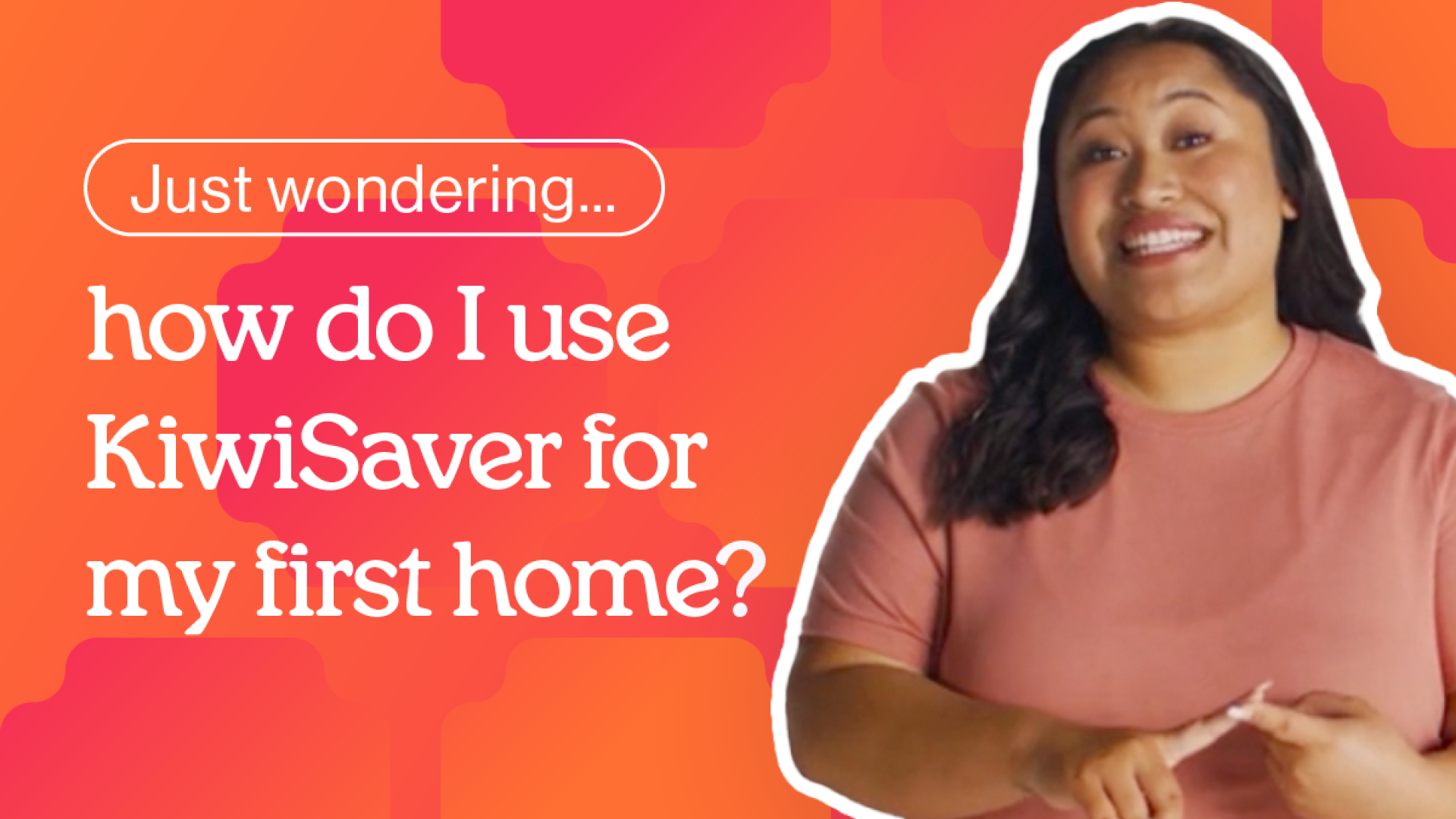
Planning & budgeting
Saving & investing
KiwiSaver
Tackling debt
Protecting wealth
Retirement
Home buying
Life events
Setting goals
Money tracking
Plan your spending with a budget
Getting advice
Studying
Get better with money
What pūtea beliefs do you have?
How to build up your emergency savings to cover unexpected costs
How to save your money
How to start investing
Find a financial adviser to help you invest
Your investment profile
Compound interest
Net worth
Types of investments
Term deposits
Bonds
Investment funds
Shares
Property investment
How KiwiSaver works and why it's worth joining
How to pick the right KiwiSaver fund
Make the most of KiwiSaver and grow your balance
How KiwiSaver can help you get into your first home
Applying for a KiwiSaver hardship withdrawal
How to use buy now pay later
What you really need to know before you use credit
How to get out of debt quickly
Credit reports
Know your rights
Pros and cons of debt consolidation
Credit cards
Car loans
Personal loans
Hire purchase
Student loans
Getting a fine
What happens if I start to struggle with moni?
How to build up your emergency savings to cover unexpected costs
Cryptocurrency
How to protect yourself from fraud and being scammed
About insurance
Insurance types
Insuring ourselves
Wills
Enduring powers of attorney
Family trusts
Insuring our homes
Losing a partner
Redundancy
Serious diagnosis
How to cope with the aftermath of fraud
Separation
About NZ Super – how much is it?
When you’re thinking of living in a retirement village
How to plan, save and invest for retirement
Manage your money in retirement
Find housing options in retirement
Four approaches to spending in retirement
Planning & budgeting
Saving & investing
How to build up your emergency savings to cover unexpected costs
How to save your money
How to start investing
Find a financial adviser to help you invest
Your investment profile
Compound interest
Net worth
Types of investments
Term deposits
Bonds
Investment funds
Shares
Property investment
View all
KiwiSaver
Tackling debt
How to use buy now pay later
What you really need to know before you use credit
How to get out of debt quickly
Credit reports
Know your rights
Pros and cons of debt consolidation
Credit cards
Car loans
Personal loans
Hire purchase
Student loans
Getting a fine
What happens if I start to struggle with moni?
View all
Protecting wealth
How to build up your emergency savings to cover unexpected costs
Cryptocurrency
How to protect yourself from fraud and being scammed
About insurance
Insurance types
Insuring ourselves
Wills
Enduring powers of attorney
Family trusts
Insuring our homes
Losing a partner
Redundancy
Serious diagnosis
How to cope with the aftermath of fraud
Separation
View all
Retirement
Home buying

Investing in KiwiSaver is a great way to save up a deposit for your first home. Here’s what you need to know.
Did you know, you can use your KiwiSaver for your first whare? You can use it for your whole deposit, or as part of it. Yeah, KiwiSaver is a great way to help you save money for your first home.
The first thing you'll need to make sure of is that you're eligible to use your KiwiSaver as a first home deposit. You'll need to have been a member for over three years to use it, you have to live in the whare you're buying, and you'll need to leave $1,000 in your KiwiSaver.
You'll want to know how much money you're on track to have for your first home. Check out the Sorted KiwiSaver calculator. Plus, it'll show you what a difference it might make if you increase your contributions.
You can also get your KiwiSaver working harder for you and help you save even more by making sure your KiwiSaver settings are right for your house-buying goal.
Look at your contributions. You can increase your deposit by making the most out of your employer, government, and your own contributions. If you put in 3% of your pay, your employer matches that with another 3%, before tax. The government will also contribute up to $521 each year. You can decide to put in more, like 4, 6, 8, or even 10% of your salary. Or you can also make voluntary contributions as much as you want. The more you can contribute, the larger your first home deposit will be.
Check that the type of fund you're in is aligned to your goals. If you're planning to use your KiwiSaver balance in the next three years for your first home, it may be worth sticking to a more conservative fund. As you don't have time to ride the ups and downs of the market, you can change it to a growth fund after you've bought your whare.
Check out Sorted's KiwiSaver fund finder if you need help. As soon as you've made the decision to withdraw your KiwiSaver, change to a defensive fund to protect your deposit. This will make sure there are no losses to your deposit so the money is there to buy your whare.
And on that note, you'll need to give your provider plenty of notice as this process can take a while. That's how to use KiwiSaver for a first home deposit. Check if you're eligible, find out how much your deposit could be, make the most out of your contributions, and protect your savings when you've made the decision to go for it.
Good luck.
Use verification code from your authenticator app. How to use authenticator apps.
Code is invalid. Please try again
Don't have an account? Sign up
Or log in with our social media platforms


A free account gives you your very own space where you can save your tools and track your progress as you get ahead.
Or sign up using Google:


